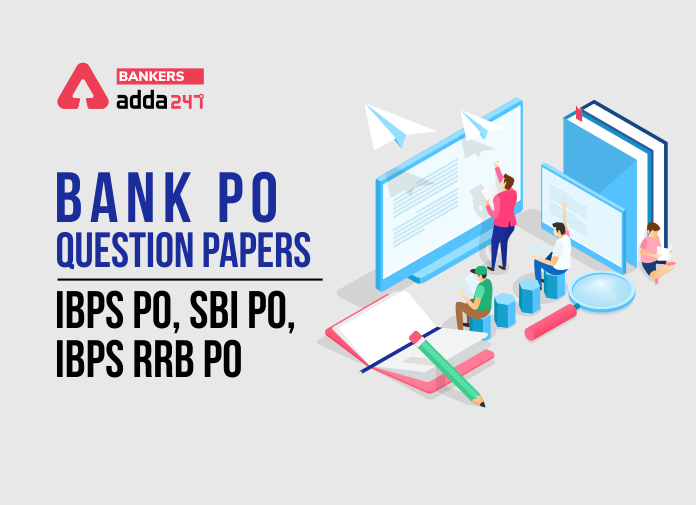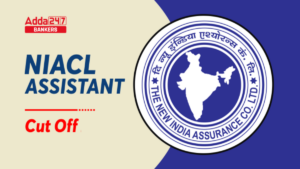Table of Contents
As we are all under lockdown, the best thing to do is to be optimistic and keep on working hard. This is the best time for banking aspirants as they can now focus more on their studies especially the working professional can surely make the best use out of this time. Once the lockdown will be over, we are expecting lots of opportunities for our students and then you might not get time to work upon your weaknesses. Hence the best thing right now is to solve the previous year papers of upcoming banking exams. We are providing you the direct link of the previous year’s paper which you can download and start practicing.
Also check,
| IBPS PO 2020 Detailed Syllabus for Prelims and Mains | IBPS PO Final Result 2020-Check Final Result Date at @ibps.in |
Memory Based Question Papers
Make sure that you go through these question papers before sitting for your final exam. Going through past year question paper will help you get an idea about the type of questions asked and the topics from which questions are asked frequently.
Bank Po Exam Pattern
A bank PO recruitment is a three stage recruitment process namley: Prelims, Mains and Interview
Phase-I: Preliminary Examination
Preliminary Examination of a Bank PO usually consists of Objective Tests for 100 marks is conducted online. This test is of 1-hour duration consisting of 3 Sections(with separate timings for each section) as follows:
| S.No. | Name of Tests(Objective | No. of Questions | Maximum Marks | Duration |
|---|---|---|---|---|
| 1 | English Language | 30 | 30 | 20 minutes |
| 2 | Quantitative Aptitude | 35 | 35 | 20 minutes |
| 3 | Reasoning Ability | 35 | 35 | 20 minutes |
| Total | 100 | 100 | 60 minutes | |
Phase – II: Main Examination
Main Examination of bank po consists of Objective Tests for 200 marks and Descriptive Test for 50 marks. Both the Objective and Descriptive Tests is online. Candidates have to answer Descriptive test by typing on the computer. Immediately after completion of the Objective Test, Descriptive Test is administered.
| S.No. | Name of Tests(Objective) | No. of Questions | Maximum Marks | Duration |
|---|---|---|---|---|
| 1 | Reasoning & Computer Aptitude | 45 | 60 | 60 minutes |
| 2 | English Language | 35 | 40 | 40 minutes |
| 3 | Data Analysis & Interpretation | 35 | 60 | 45 minutes |
| 4 | General/ Economy/ Banking Awareness | 40 | 40 | 35 minutes |
| Total | 155 | 200 | 3 Hours | |
Descriptive Test: The Descriptive Test of 30 minutes duration with 50 marks is a Test of English Language (Letter Writing & Essay). The candidates are required to qualify in the Descriptive Test by securing passing marks, to be decided by the Bank. Descriptive Test paper of only those candidates will be evaluated who have scored qualifying marks in the Objective Tests and are placed adequately high as per total marks in the objective test.
Phase – III: Interview
The aggregate marks of candidates qualifying in both the Objective Tests and Descriptive Test are arranged in descending order in each category. The adequate number of candidates in each category, as decided by the Bank are called for Interview. The qualifying marks in Interview are decided by the Bank.
Why Previous Year Papers?
1. Helpful in understanding the Exam Pattern:
Previous year papers are the best way to understand the exam pattern of any exam especially banking because there are so many recruitment notifications such as SBI, IBPS, RRB PO. So, it is important to understand how one exam differs from another. For ex- There are three sections in SBI PO while there are only two sections in RRB PO in the prelims examination.
2. Helpful in identifying the Important Topics For Exams:
Previous year papers are the best source of practice as they give you the exact level of difficulty unlike books whose content deviates from the standard type of questions.
3. Helpful in analyzing the Difficulty Level of the Exam:
You can always score better in exams by attempting those topics first in which you are good. A student is not supposed to attempt the whole paper. Certain questions are purposely given in the paper to waste the student time. You will learn to skip such types of questions by solving the previous year’s papers.
4. Helpful in identifying your Strong and Weak Areas for the Exam:
You can always score better in exams by attempting those topics first in which you are good. You get to know your strength by solving the previous year’s papers. Make a time-table as per your performance in previous year papers and start practicing on topics that take more time or you are unable to attempt in the exam.
5. Helpful in Managing the Time:
Time management is a crucial skill that most students lack because they don’t practice with a timer. Always make sure that you attempt previous year papers with a timer.
Also Read,
Click Here to Register for Bank Exams 2020 Preparation Material
Practice With,



 GA Capsule for SBI Clerk Mains 2025, Dow...
GA Capsule for SBI Clerk Mains 2025, Dow...
 The Hindu Review October 2022: Download ...
The Hindu Review October 2022: Download ...
 NIACL Assistant Mains Cut Off 2025 Out, ...
NIACL Assistant Mains Cut Off 2025 Out, ...





